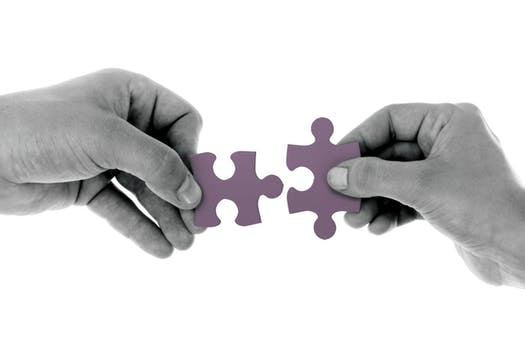Last week, within days of each other, we lost two beloved and admired public icons: Kate Spade and Anthony Bourdain. Both died from suicide. Both were at the pinnacle of their careers and success.
Or so we thought.
While I did not know either celebrity personally, I felt a jolt, a sense of loss, sadness, and great sorrow.
I loved Kate Spade purses. Her sense of color that exuded happiness, brightness, and fun appealed to me. I often wished I had bought several – although her price was a bit steep for my budget. Despite my fascination with her vivid colors, I did wind up buying a black cross body bag that was more “practical” for my lifestyle. The feel of soft leather and the simplicity of design in that purse has accompanied me on many occasions of travel and professional engagements.
Anthony Bourdain came into my home regularly with his TV show, Parts Unknown. I admired – no envied – his joy of life, food, and travel. He took me to far away places in my mind as he circled the world and heartily dug into culture, friendships, and incredible food. I wondered how anyone could maintain the schedule and diet that he did. He was unflappable.
Or so it seemed.
The closest I ever came to Anthony Bourdain occurred a couple of years ago in New York. My husband and I were sitting at a small outdoor café having coffee when a man and a young girl sat at the table next to us. I recognized him immediately. He was sitting so close I could overhear his conversation with his daughter talking about what he was going to prepare for the two of them for dinner. I was astonished at how simple it was, as I imagined a gourmet meal.
Trying to balance my respect for his privacy and my tug to say hello to him, I struggled with my conscience for a few minutes. I decided not to go to his table, although many passers-by did double takes, and some went over to his ask for selfies.
So why am I writing about Kate Spade and Anthony Bourdain when I typically write about stage fright? Here is why: Both Kate Spade and Anthony Bourdain had public personas bigger than life. We loved them. We admired their accomplishments. We envied their fame and fortune. We conjured up stories to ourselves about their perfect lives, their wonderful relationships, their enormous wealth, their ability to find acclaim through their work.
And then, abruptly, we learned they ended their own lives.
We struggled with the notion, like with a magician who is sleight of hand, that what you “see” in public is not what you “get” in private – in the depths of the mind. Oddly yet simply, this is how I think we can truly identify with these two personalities. We imagined them to have a fame that excluded a down side – a sad side, early rejections, self-doubts, guilt over some actual or perceived transgression, regret, a sense of not being deserving, perhaps even a side that envied you and me for our more everyday struggles and pleasures – and our privacy. Perhaps a side that wished they could sit in a café and NOT be recognized and interrupted.
Performers, famous and unknown alike, know similar apprehensions and feelings – rejection, envy, competitiveness, appearing confident on stage but dying inside with anxiety and fears. Some seek professional help; others do not. Please do not think I am suggesting that such feelings typically lead to suicide. However, I am suggesting that one need not cope with dark feelings alone or reach rock bottom emotionally and silently which provoke dire, irreversible actions.
A check in with friends or teachers or trusted others who are informed about depression and anxiety can save lives by comprehending that even a minor statement about ending life, a joke about “not being here”, a longing to be with another person who has died, recent or past unmourned losses (and many other feelings) can be a warning that professional help is needed for further evaluation and treatment. This realization and areferral to professional help is a gift to our friends who suffer in their private, unknown lives. Colleagues, teachers, and friends must never hide behind “I don’t know what to do” or “It can be worse if we talk about it”. No! It can be worse if you do not talk about it. Darkness, like night, becomes morning and can be brighter. I recall wise advice my beloved grandmother gave me if I became upset about something at bedtime- “Things always seems worse at night”.
Sadly, not all suicides can be prevented. But many can when we educate ourselves, and when we tune into the subtle “parts unknown” (i.e., our mind below the surface) of others and of ourselves.
Keep this 24 hour Suicide Hotline phone number nearby and use it if you suspect a family member, a friend, a colleague, or you need to talk to someone for any reason. There is no stigma in seeking help.
1-800-273 TALK (8255)
Ironically Anthony Bourdain left us an undying message in the title of his TV show, Parts Unknown – i.e., that there is part of the mind that is unknown beneath the conscious mind. This unknown mind gives clues (both subtle and obvious) to those who become tuned in to what to look and listen for.
There are Parts Unknown in all of us. With more public attention and education about the power of the mind and the simple as well as crisis symptoms of emotional distress, i.e., what you see and hear (in behavior, affects, and words), we can move toward reducing tragedies such as those of last week – and the lifelong aftermath they leave with devastated families, friends, and fans.
RIP Kate Spade and Anthony Bourdain.
(“PARTS UNKNOWN” is the title of the TV Program hosted by Anthony Bourdain. I borrow his insightful title for this blog)

